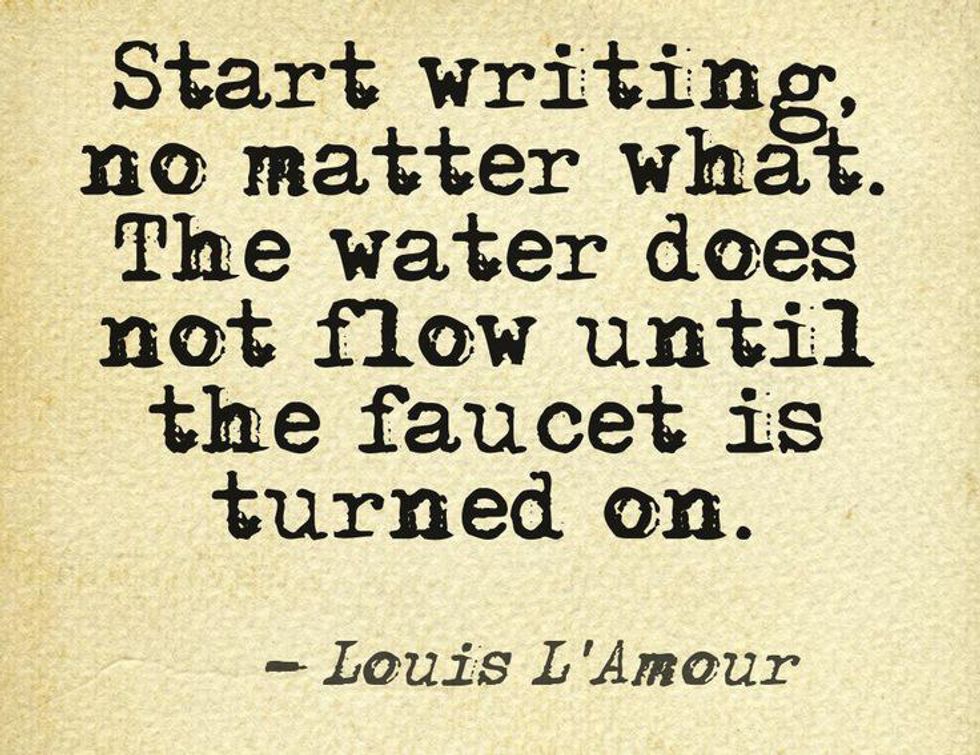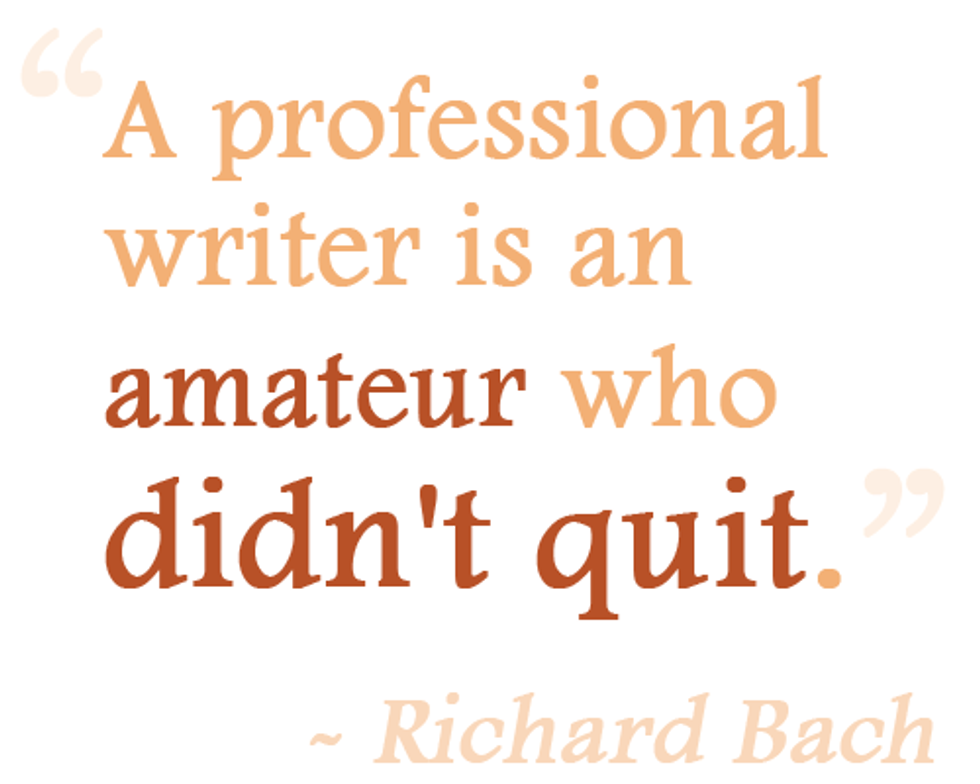Many people who label themselves aspiring writers have yet to progress to the first phase of the writing process: writing. They daydream about holding a first draft in their hands and becoming accomplished authors, but when they are called upon to pursue their dream, they conclude that they do not have the time to write, the inspiration, or the will. They build a wall out of various excuses to keep themselves from submitting to the call; and carry on with the belief that one day they will write the story stirring inside them.
Unfortunately for these people, if they continue as they are, their writing aspirations will never become reality. That being said, they should not lose all hope. Writers do not become professionals because they are talented or gifted. (Though many certainly are). They choose the writing path and channel all their energy into becoming writing warriors.
Here are three steps you can take toward graduating from aspiring writer to fiction writer.
1. Always be writing.
If you want to overcome the barriers holding you back, you must push past them, sit down and do the work. Get words onto the page. It’s a daunting task, I know. All that blank, white space can be intimidating. But the only way to conquer the fear of starting is by acting on your desire to be a writer. Let loose first thoughts and cheer yourself on as you gradually hack away at that tall wall blocking your path to success.
Whenever you think about being a writer, start writing. Don't put off your story another day because the creative juices aren't flowing. If you are unsure of where to begin, consider answering simple questions about your work in progress: What is your story about? Who is the protagonist? Where does the story take place? What is the main conflict?
Be creative. Write with a purpose. A first draft doesn’t demand perfection. It simply needs to exist.
2. Believe in the power of your voice.

Those who do not trust in the voice they have will be forever stuck in transition - dreaming of but never working toward finishing a first draft. Often, they join the ranks of those who boast about having great ideas but have no manuscript to show for it.
Don't fall into this trap. When writing, always be yourself. No one else can tell your story better than you.
So, write with confidence. Establish a writer's voice that you can be proud of. One, you want to share with the world. If you truly believe that you deserve to be heard, no matter how hard you struggle, your voice will not be silenced.
3. Learn to get over rejection.
All writers experience rejection and the gloomy feelings that accompany it. There will be days when the insecurities you’ve built up come crashing down and fill you with doubt, regret, and dread. You must not allow yourself to walk away from your work in progress just because your precious darling manuscript has been met with a curt dismissal.
A person who is serious about writing will learn early on that rejection is a large part of a writer’s life. It will happen often and each time it will hurt.
But, guess what? Even on those dark days, writers pick up pen and paper and get back to work. They keep pushing forward one step at a time. They query, again and again, until one day, someone reads their story and falls in love with it.
If you want to graduate from being an aspiring writer, you must learn to swallow your pride and persist through every failed attempt at publishing. It will be tough. Rejection stings. However, a writing warrior never gives up fighting for what they believe in.






















